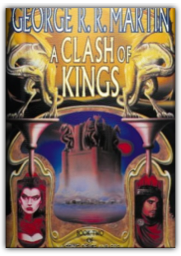
George R.R. Martin writes sword-and-sorcery which concentrates on the swords. A Clash of Kings is the second volume of A Song of Ice and Fire, the sequence which began with A Game of Thrones and will take another four volumes to complete. The Seven Kingdoms are divided by revolt and blood feud; beyond their Northern borders, the men of the Night Watch fight the coming of a great cold and the walking corpses that travel with it; on the other side of the ocean, the last of the Kingdom's deposed ruling house mourns her horseclan husband and rears the dragonlets she hatched from his funeral pyre. This is character-driven fantasy—we see most events through the eyes of the sons and daughters of the Stark family, the once and future Kings of the North, whose father's judicial murder started the war. Martin avoids the cosy Californian cheeriness of many epic fantasies in favour of a sense of the squalor and grandeur of high medieval life; there is passion here, and misery and charm—and a profound sense of moral ambiguity as we learn to like the Richard III figure in this epic as much as the more virtuous Starks. —Roz Kaveney 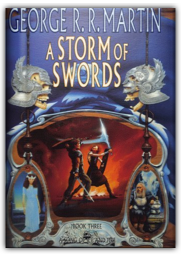
The third volume of his six-volume fantasy epic "A Song of Ice and Fire", "A Storm of Swords" continues Martin's vigorous account of the civil wars which follow the death of King Robert—the usurper who deposed a dynasty gone mad and dangerous—and the judicial murder by his widow and heir of Ned Stark, the man who made him king. The surviving Stark children are scattered—Robb leading a revolt in the North; Arya learning hard lessons as she treks through the war zone; Sansa an observer of court intrigue; crippled Bran heading towards a sorcerous destiny; and Jon engaged in desperate defence of the ice-wall against barbarians and worse things. Daenerys, pretender and ruler of dragons, is building an empire elsewhere. Meanwhile, characters we have thought of as villains, notably Jaime Kingslayer, are developing belated consciences. Martin keeps on upping the ante of violence and betrayal in this compelling saga of a fantasy middle ages soiled with blood and mud; his economic use of magic and his fascination with complex characters make this the sword-and-sorcery series for people with adult taste. As the series proceeds, his writing gets ever leaner and sharper, the evocation of the magical ever more sinister. —Ros Kaveney 

It seems strange to find a 1954 vampire novel in Millennium's "SF Masterworks" classic reprints series. I Am Legend, though, was a trailblazing and later much imitated story that reinvented the vampire myth as SF. Without losing the horror, it presents vampirism as a disease whose secrets can be unlocked by scientific tools. The hero Robert Neville, perhaps the last uninfected man on Earth, finds himself in a paranoid nightmare. By night, the bloodthirsty undead of small-town America besiege his barricaded house: their repeated cry "Come out, Neville!" is a famous SF catchphrase. By day, when they hide in shadow and become comatose, Neville gets out his wooden stakes for an orgy of slaughter. He also discovers pseudoscientific explanations, some rather strained, for vampires' fear of light, vulnerability to stakes though not bullets, loathing of garlic, and so on. What gives the story its uneasy power is the gradual perspective shift which shows that by fighting monsters Neville is himself becoming monstrous—not a vampire but something to terrify vampires and haunt their dreams as a dreadful legend from the bad old days. I Am Legend was altered out of recognition when filmed as The Omega Man (1971), starring Charlton Heston. Avoid the movie; read the book. —David Langford 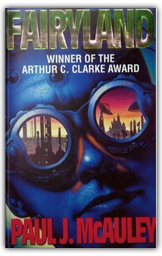
Having already made the final shortlist for the Arthur C. Clarke Award with his SF novels Eternal Light and Pasquale's Angel, Paul McAuley finally won this coveted prize with Fairyland. The title's hint of fey fantasy is blackly ironic: this is a streetwise cyberpunk future, replete with gene-hacking, instant designer drugs, and mind-warping viruses that function as "love bugs" or "loyalty plagues". One spinoff of genetic tailoring is a slave race of blue-fleshed "dolls", modified baboons made bright enough to do society's dirty jobs—until they're liberated by the unholy alliance of an idealistic child prodigy and a biologically savvy nerd, boosting them to thinking, evolving, breeding "fairies". And indeed the night becomes full of unwholesome magic and fanged terrors again, as this new race steps into the old mythological niche of the dark elves, attacking venomously from the trees and setting up their private fairyland in the decayed remains of a certain Magic Kingdom outside Paris... Though occasionally obscure and not quite plausible in all its plot details, Fairyland is a creepily effective nightmare of a world becoming increasingly chaotic under the stress of runaway biotechnologies, excessively deadly toys in the hands of people with no more common sense than children. Vivid and viscerally compelling. —David Langford 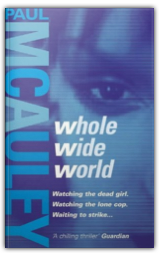
Paul McAuley continues to show his SF versatility in Whole Wide World, a noir thriller opening in a near-future London where government obsession with pornography, surveillance and regulating the Internet still hasn't made crime go away. Quite the contrary. |
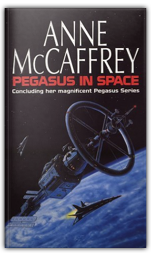
Anne McCaffrey is best known for the Dragonriders of Pern, but her loose "Talents" SF series about superpsychics has been running almost as long. This began with the near-future (1973), To Ride Pegasus continuing a couple of generations later in Pegasus in Flight (1990). Book two introduced a crowd of new characters, notably the paralysed boy Peter whose telekinetic talent can not only move his body without help from his ruined nervous system, but—with practice—even lift payloads into orbit. 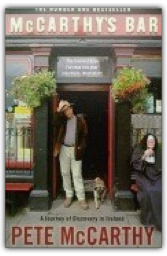
The premise of Pete McCarthy's first book, McCarthy's Bar, is that you should never pass up the opportunity of having a drink in a bar that shares your name. There is clearly more to this plan than the obvious publicity stunt, since it could work with books as well—try reading Cormac McCarthy after reading this hilarious, informed and intelligent book, and you may well be tempted to buy books by every other McCarthy around. 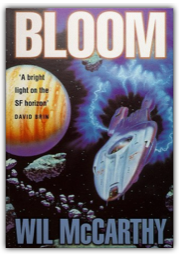
One day, late in the 2090s, a new form of life—a galloping fungal growth—blooms in New Guinea and, within days, devours Earth and most of its inhabitants. Within years, it has permeated the inner solar system and gobbled four planets—the few survivors of the Evacuation sit in bases in the asteroids and the moons of Jupiter waiting for the Bloom to mutate again, to cope with the cold of the outer system, or for the enthusiasts who worship it to let it loose among them. And reporter John Strasheim is asked to go with an expedition back to Earth, supposedly to plant monitors, and to test new defences. Much of the power and suspense of this high-grade SF thriller comes from claustrophobia—a crew of six in a cramped space and one of them at least a traitor. Strasheim is an engaging narrator, a cynic with a heart of gold, who cares more passionately than he thinks for the future of humanity. Two colonies—uptight Ganymede and relaxed cyber-hedonist Port Helier—are nicely contrasted. And, because this is the sort of book it excellently is, we know that, in all sorts of ways, things are not what they seem. —Roz Kaveney 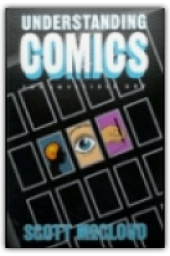
As all good card-carrying comic-book fans know, their sheer passion will never overcome narrow-minded critics and their baying cries of derision. There is far more to this perpetually underrated medium than a mix of art and prose. With this indispensable, spellbinding tome, writer/artist Scott McCloud rises to the challenge of dissecting what remains the most enigmatic of art forms. After all, says McCloud, "No other art form gives so much to its audience while asking so much from them as well". Over the course of 215 impeccably formed pages, McCloud joyously exposes and deconstructs a hidden world of icons in a most literate and valid manner. His charming guidance finds a place where Time and Space is effortlessly malleable and the reader is both a willing accomplice and necessary vessel for comics' singular magic. Cunningly presented in comic form, McCloud (or his comic equivalent) conducts a journey that spans thousands of years, taking in art from Prehistoric Man to the Egyptians to Van Gogh to Jack Kirby. Never has psychological and cultural analysis been so understandably clear, beautifully aided by clever visuals and his truly infectious love for the medium. By the end of this funny, charming, rare and exciting book, you'll not doubt the notion that a comic book "...is a vacuum into which our identity and awareness are pulled ... an empty shell that we inhabit which enables us to travel to another realm". A fine exchange for a little faith and a world of imagination. —Danny Graydon 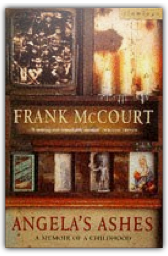
"Worse than the ordinary miserable childhood is the miserable Irish childhood," writes Frank McCourt in Angela's Ashes. "Worse yet is the miserable Irish Catholic childhood." Welcome, then, to the pinnacle of the miserable Irish Catholic childhood. Born in Brooklyn in 1930 to recent Irish immigrants Malachy and Angela McCourt, Frank grew up in Limerick after his parents returned to Ireland because of poor prospects in America. It turns out that prospects weren't so great back in the old country either—not with Malachy for a father. A chronically unemployed and nearly unemployable alcoholic, he appears to be the model on which many of our more insulting clichés about drunken Irish manhood are based. Mix in abject poverty, and frequent death and illness, and you have all the makings of a truly difficult early life. Fortunately, in McCourt's able hands it also has all the makings of a compelling memoir. 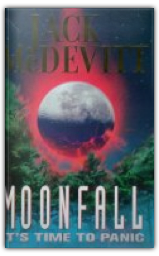
Gigantic meteor impacts have been a familiar SF cliché for decades. Jack McDevitt (whose first SF novel appeared in 1986) rings the changes with a two-stage disaster. A sun-grazing comet from deep space becomes visible only during the 2024 eclipse: it's a planet-killer, too big and fast for interception, and impact is in just five days. The twist is that it's going to hit the Moon. Lashings of drama follow as our lunar base—just opened by the US Vice-President, who's still there—is desperately evacuated by a Dunkirk flotilla of moonbuses, spaceplanes and a prototype Mars ship. At last the incoming monster, 180 km across, smashes into the Moon: as though this were a violent first break in snooker, random fragments fly everywhere. With grim plausibility, McDevitt shows the US government initially spin-doctoring the problem as nothing much to worry about. Then the sky begins to fall ... 37 chunks of Moon spawning fireballs and floods, and a massive 38th that threatens global extinction. The last-ditch effort to tackle this—not using nukes—attracts a sabotage strike from US militia loons who reckon it's all a government plot. McDevitt mercilessly cranks up the tension, and the pages turn faster and faster. A highly competent technothriller. —David Langford 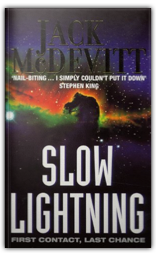
Jack McDevitt's debut novel was The Hercules Text in 1986; since then he has published further thoughtful science fiction and the disaster blockbuster Moonfall 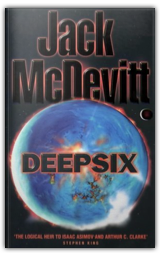
Deepsix is concerned with the motivating force that drives all scientists—the quest for truth, for expanding the limits of human knowledge. How much are we willing to risk for that moment of discovery, of knowing what no other soul yet knows? Our time? Our reputations? Our careers? Our lives? 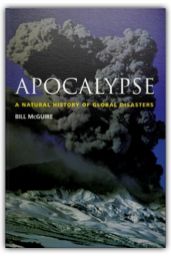
We have survived the potential hazards of the beginning of the new millennium but as Bill Maguire reminds us we survive on planet Earth purely by geological consent. Over the last few thousand years the Earth has been remarkably quiet—geologically speaking, and has dealt none of the literally Earth-shattering blows of which she is capable. 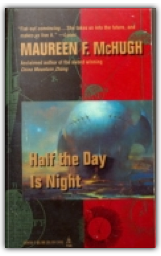
Here's the second novel from an author whose first, the 1992 China Mountain Zhang, was widely acclaimed in sf circles. In contrast to the earlier book's world-spanning jaunts, this one offers a tight, tight focus on a claustrophobic setting—Caribe, a deep-sea habitat far beneath the Caribbean, where the sun doesn't reach and all the lighting is artificial. So is a great deal of habitat life, which is full of sharp details like the need to give yourself an artificial fever with "pyroxin" to maintain body warmth when scuba-fishing in the chill waters outside. McHugh's lead characters are both distrusted misfits who are at risk in this high-tech segment of the Third World: a male French-Vietnamese mercenary and the female Chinese-American banker who takes him on as a needed bodyguard. Tension steadily increases through financial shenanigans, terrorist intervention, scapegoat-hunting local police, sudden gunfire, and explosive sabotage. Ultimately, this seabed pressure-vessel called Caribe is a huge sealed trap for outsiders, who end up on the run, stripped of their exit visas, all the options closing down except the remote hope of making a break for it. The story squeezes harder and harder until the satisfyingly understated finale. Not a flashy novel, but a good one. —David Langford |

Mike Scott
Collection Total:
4227 Items
4227 Items
Last Updated:
Feb 21, 2010
Feb 21, 2010
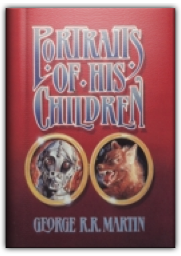

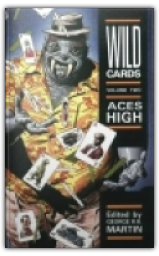
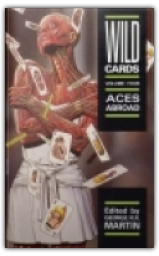
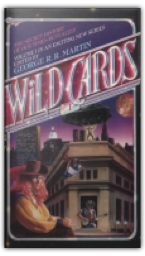
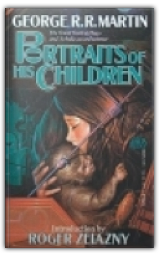

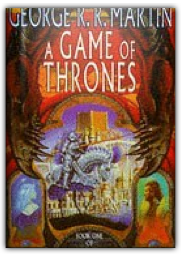
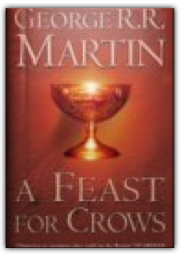

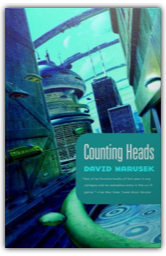
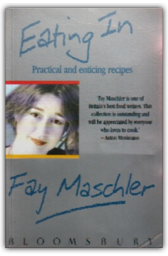
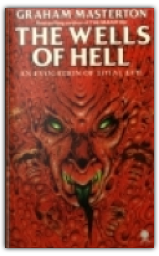
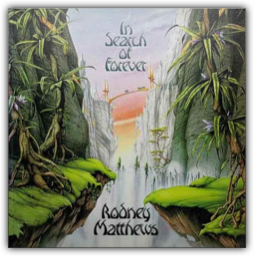
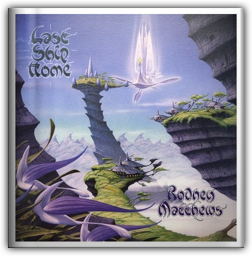
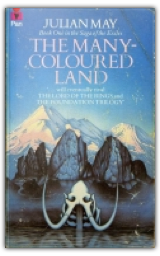
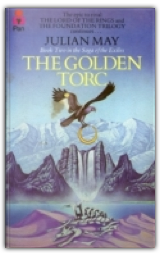
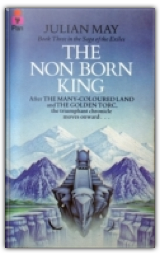
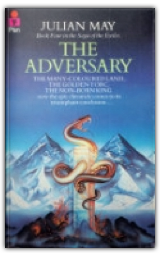
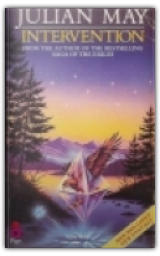
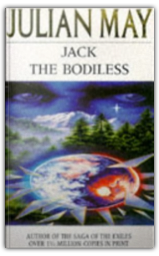
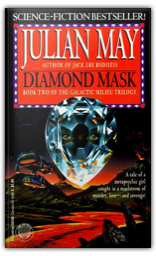
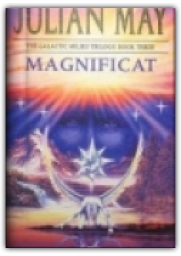

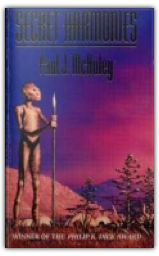
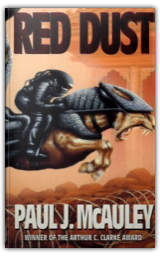
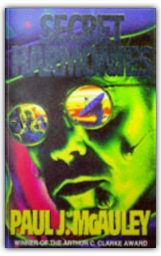
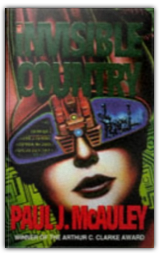
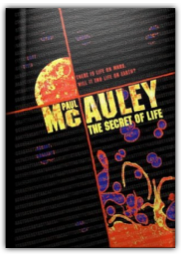
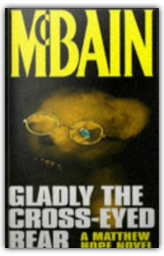
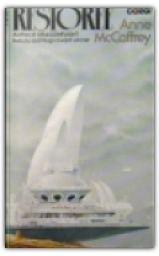
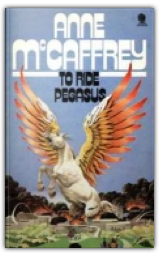
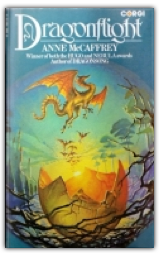
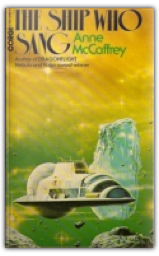
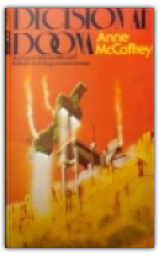
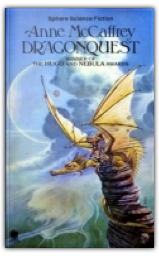
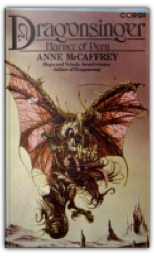
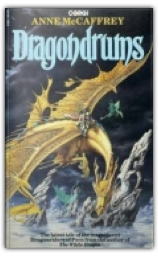
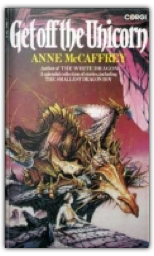
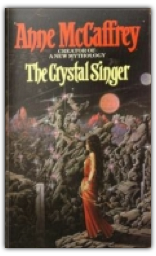
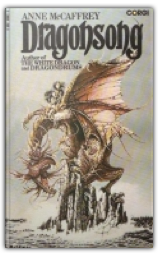
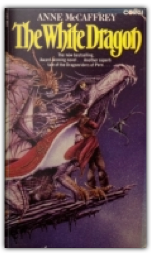
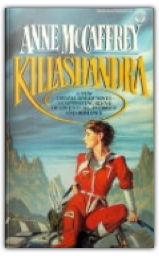
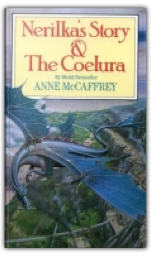
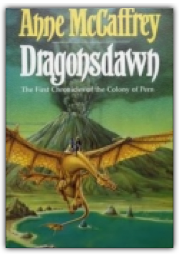
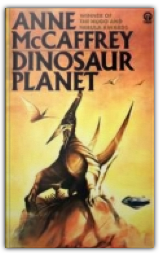
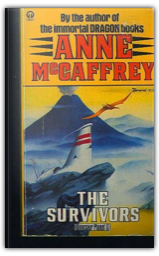
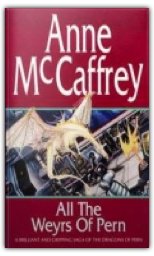
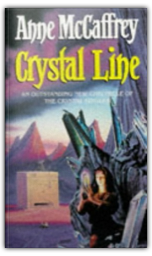
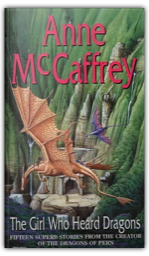
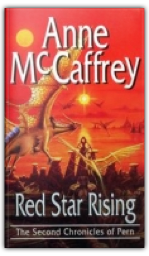
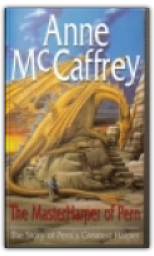
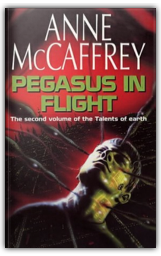

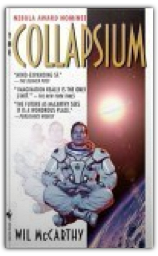
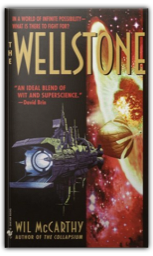
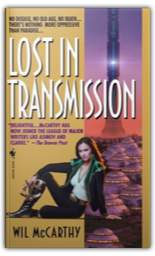
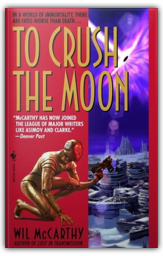
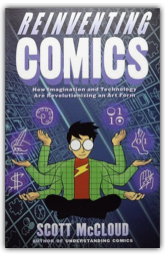
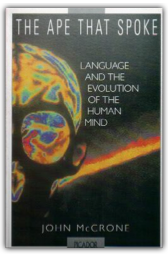
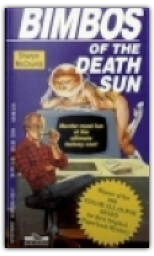
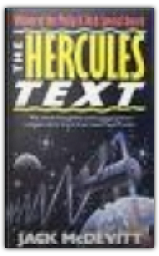
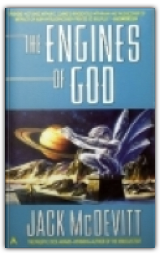
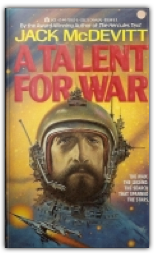
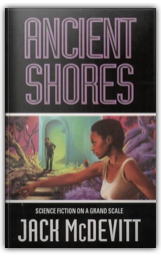
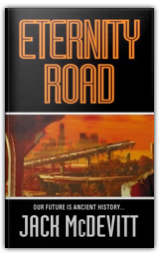
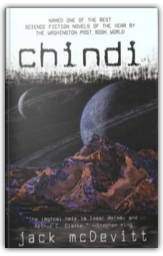
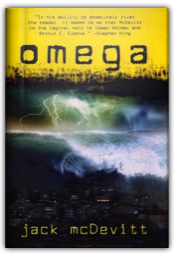
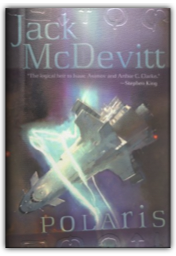
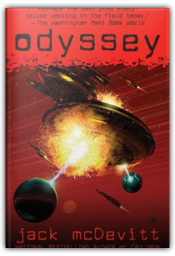
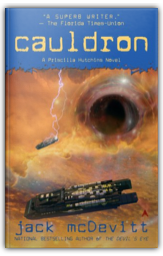
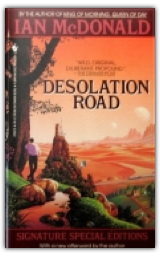

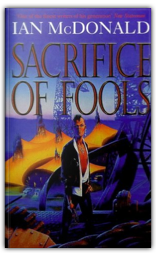
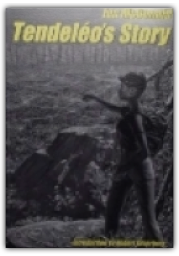
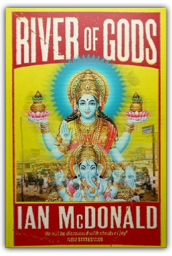

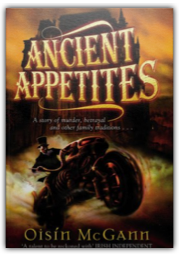
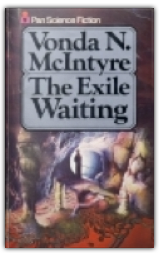
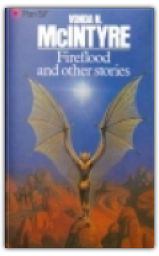
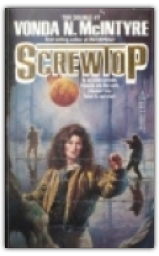
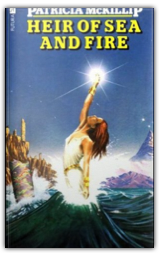
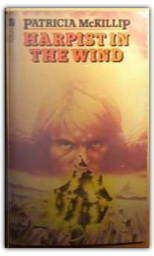
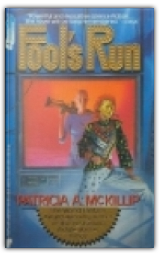
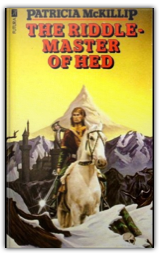
 Made with Delicious Library
Made with Delicious Library